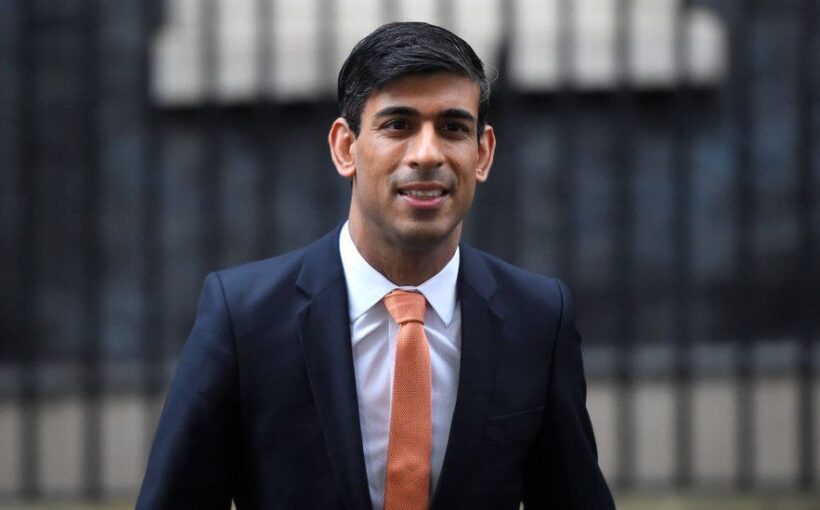DUBLIN – Rishi Sunak should postpone plans for an international investment conference in Northern Ireland because it will cast a counterproductive spotlight on its political paralysis, the U.K. prime minister has been warned.
Sunak announced plans for the September 12-13 conference following his Windsor Framework agreement with the European Union. That painstakingly negotiated compromise was designed to minimize post-Brexit restrictions on British goods movements into Northern Ireland and reinforce the U.K. region’s unique access to the EU single market, a potential selling point for multinationals.
While the deal ended years of Brexit headbutting between London and Brussels, it failed to persuade the Democratic Unionists – the main pro-British and pro-Brexit party in Northern Ireland – to end their boycott of local government at Stormont.
With no prospect of a political breakthrough, the other parties in Northern Ireland’s mothballed coalition government are arguing that it would be smarter to delay the conference until Stormont can be revived. Their warning comes amid signs of rising divisions within Jeffrey Donaldson’s Democratic Unionists over when, if ever, the party will stop employing its veto on forming a cross-community administration in line with Northern Ireland’s 1998 peace accord.
The DUP’s moderate rival for votes on the British Protestant side of the Northern Irish divide, the Ulster Unionists, confirmed Thursday they have written to Downing Street asking Sunak to delay the conference by six weeks. A U.S. trade delegation is scheduled to visit Belfast on October 24 – by which time, they hope, the DUP will have permitted the Northern Ireland Assembly to elect a speaker and form a four-party government.
Donaldson has been blocking both steps since May 2022, when his party came second in assembly elections to their Irish republican opponents, Sinn Féin. That sea-change result, reinforced in council election results this year, means the Democratic Unionists must surrender the government’s top post of first minister to their adversaries for the first time.
Ulster Unionist leader Doug Beattie said he has asked Sunak to delay the conference because it should “happen against a backdrop of a functioning government,” whereas now it would highlight Northern Ireland’s inability to maintain a stable government, a turn-off for risk-averse investors.
“This conference could lead to major investment and many new jobs. Holding it at the wrong time risks that being lost,” Beattie told the Belfast Telegraph.
No backing down
There’s no sign that Donaldson is about to shift his obstructionist policy, which began two years ago, shortly after he became DUP leader following a bitter internal tussle.
Donaldson initially instructed his party’s ministers to block meetings with the Irish government, then ordered the DUP’s first minister to resign his post and start the clock ticking on the collapse of power-sharing. The rest of the Stormont administration limped on until its formal failure in October, leaving Northern Ireland Secretary Chris Heaton-Harris to argue with Stormont’s senior civil servants over who should be responsible for fixing a mounting fiscal mess.
A U.K. government spokesman said plans for a the September event in Belfast, with hopes of attracting around 150 foreign firms, would not wait for a DUP U-turn.
“While we want a functioning executive back up and running in Northern Ireland as soon as possible, it is important, with or without Stormont sitting, that the U.K. government continues to work to attract private sector investment to drive economic growth in Northern Ireland. The investment summit is a great way of doing that,” he said.
Donaldson insists that the DUP will unlock Stormont only if the U.K. satisfies ill-defined demands to water down the EU-required controls on incoming British goods that are still required under the Windsor Framework. He denies that his party’s deep-seated antipathy to Sinn Féin is a factor.
Yet other senior DUP figures seem disinterested in reviving any Stormont coalition that, based on the 2022 results, would elevate Sinn Féin and weaken the DUP at the executive table they are supposed to share with the Ulster Unionists and the middle-ground Alliance Party. Some of those DUP hardliners badmouth Donaldson behind his back as weak and likely to cave eventually to Downing Street pressure.
Donaldson shot back at the weekend in a newsletter for party activists that, because of its wide distribution, was guaranteed to leak. In his message, Donaldson criticized unnamed figures within the DUP “who brief against their own party” to “advance their personal agenda.”


